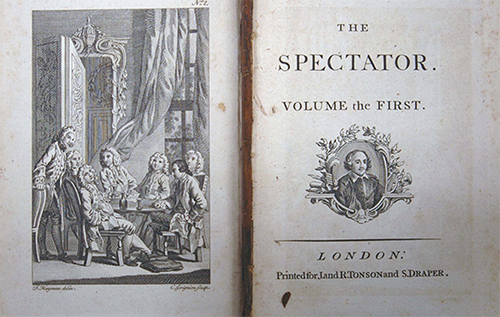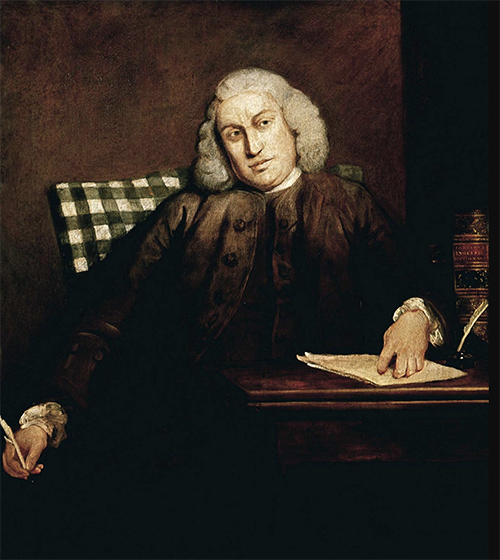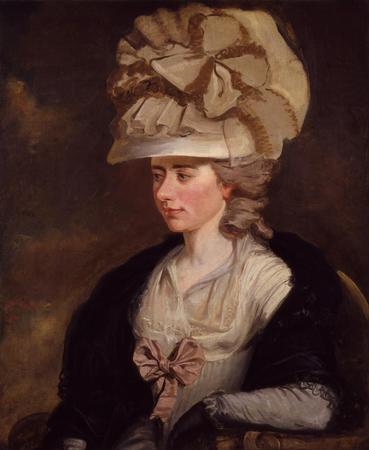Tuesday, January 11th
Course Introduction
1699, John Locke, selections from Some Thoughts Concerning Education (pdf)
Qualtrics Survey: https://ugeorgia.ca1.qualtrics.com/jfe/form/SV_brXC3c8KwJ6YVue
Thursday, January 13th
Course Pack Readings:
John Locke, selections from Some Thoughts Concerning Education (1699)
From The Spectator, #1 “Introduction to Mr. Spectator” (1711) and #411 “The Pleasures of Imagination” (1712), CP pgs 1-7
From Eliza Haywood, “The Female Spectator” (1744-46), CP pgs 8-14
From Samuel Johnson, from The Rambler, [On Fiction] (1750), CP pgs. 37-40
From Samuel Johnson, The Adventurer, “The Age of Authors” (1753), CP pgs 15-19
From Vicesimus Knox, “On Novel Reading” (1778), CP pgs 20-24
From The Lounger, “The Danger of Novels”(1785), CP pgs 25-29
Today’s Writing Prompt is now posted on eLC
**
Tuesday, January 18th
Course Pack Readings:
Alexander Pope, Essay on Man [Design and Epistle 1](1734), CP pgs. 41-48.
Samuel Johnson, Vanity of Human Wishes (1749), CP pgs 30-36
From William Blackstone, Commentaries on the Laws of England (1765), CP pgs. 49-52
*Tuesday’s Writing Prompt is now posted on eLC*
In-Class Work: You’ll be put into breakout groups to discuss the literary devices found in Alexander Pope’s Essay on Man. Your goal here is to discuss how a variety of such devices function to reinforce Pope’s overall goals as he seeks to study “Man, in the abstract.” As you’ll see from the attached sheet, I’ve divided these terms into two groups. Your group must discuss two such terms from each group and be prepared to share your discussion with the class as a whole. You’ll also see that I’ve actually provided examples from Pope in group 2. Although I’d prefer for you to find your own examples, you can also discuss the function of the examples that I’ve identified for you.
LITERARY TERMS AND RHETORICAL FIGURES and HOW TO QUOTE POETRY
Thursday, January 20th
Lady Sarah Pennington, from An Unfortunate Mother’s Advice to Her Absent Daughters; In a Letter to Miss Pennington (1761) in Evelina 621-627
Hester Chapone, Letters on the Improvement of Mind (1773), CP pgs 53-66
Hannah More, Essays on Various Subjects (1777), CP pgs 67-71
**
Tuesday, January 25th
Frances Burney, Evelina, Volume I
(Inclusive of the title page, the dedicatory poem, the “letter” to critics, and the preface, pp. 89-242). You do not have to read the critical introduction by the editors beforehand but you will want to read it prior to moving on to the next book on the syllabus.
“Place in Frances Burney’s Evelina”and more links
ODNB entry on Burney. You will need to login to libs.uga.edu and the Oxford Dictionary of National Biography database in order to access this link.
An “epistolary novel” is “a novel whose plot is entirely developed through letters, whether through an exchange of letters between multiple characters or through the correspondence of only one character. The form has been employed for the immediacy it lends the narrative (that is, events are recounted just after — and occasionally even during — the moment of their occurrence) as well as the opportunity it provides to reveal the intimate, private thought s of characters” (The Bedford Glossary of Literary Terms 110)
Thursday, January 27th
Burney, Evelina, (Volume II; 245-357, through Volume II, Letter XX)
Homepage, February, March, April and May


